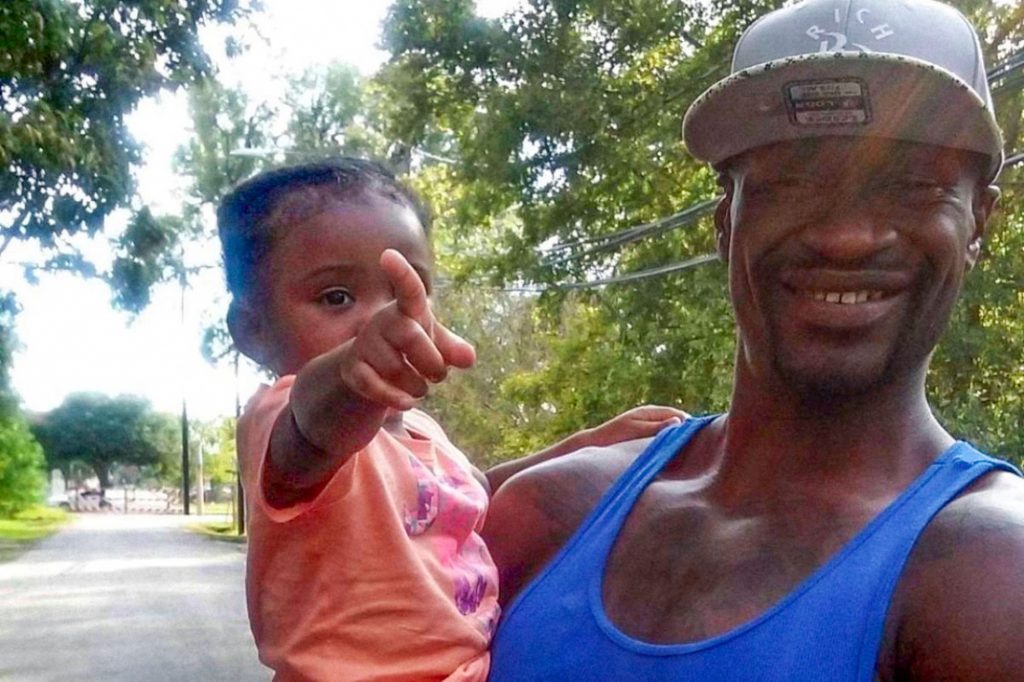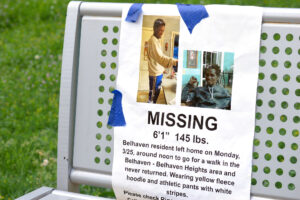Soon after a jury convicted Minneapolis Police Officer Derek Chauvin today for his brother’s murder, Philonise Floyd’s voice cracked and tears welled in his eyes as he thought of a 13-year-old boy from Chicago whom two white men brutally murdered while he was visiting family in Mississippi 66 years ago.
“The person that comes to my mind (died in) 1955, and to me he was the first George Floyd. That was Emmett Till,” Floyd said, referring to the 13-year-old whose body was found in the Tallahatchie River where the white murderers dropped him with a cotton gin fan tied to him with barbed wire.
An all-white jury in Sumner, Miss., let Till’s killers go free after they said they killed him because he whistled at a white woman. “What else could I do? He thought he was as good as any white man,” said J.W. Milam, one of his killers.
Floyd died last year during an arrest after Chauvin knelt on the handcuffed man’s neck while he lay on the ground in a Minneapolis street. Despite Floyd’s cries for help and declarations that he could not breathe, the white officer held the position, staying there for minutes after the man had stopped moving as bystanders, some filming the incident, pleaded with him to move.
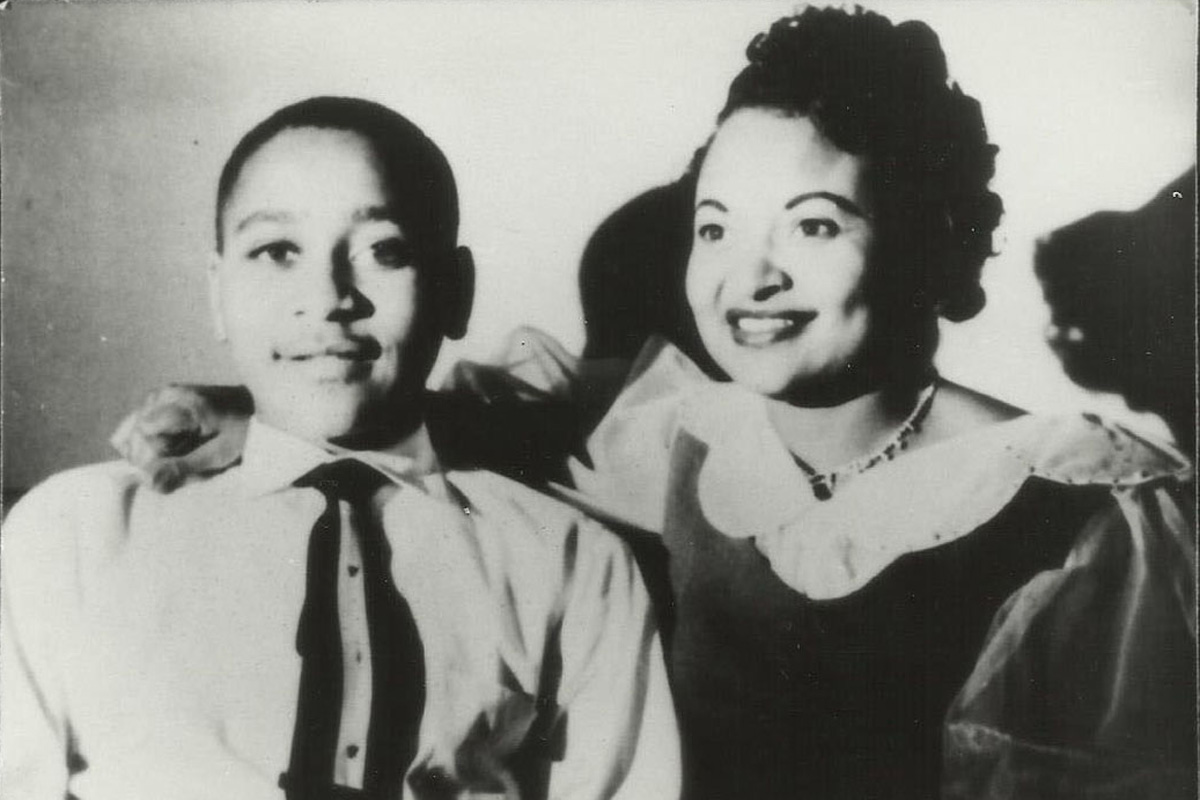
Videos of Floyd’s death sparked summer-long protests nationwide, including dozens in the Magnolia State. It also drew attention to other police killings, including the 2017 death of Marc Davis in Petal, Miss., which local police and other officials said was justified. Greenville police killed Ronnie Shorter, also in 2017.
Hal Marx, Petal’s mayor, ignited protests and calls for his resignation last spring after he baselessly claimed that Floyd died from an overdose—not due to lack of oxygen.
‘More Than A Symbol’
In Mississippi, as across the nation, leaders and civil-rights organizations celebrated today’s conviction in Minnesota, but stopped short of declaring victory.
“This verdict is just, but it is not justice. Justice restores and repairs. No action can restore the life of our brother George Floyd to his family and community,” Jackson Mayor Chokwe A. Lumumba, who is Black, said in a statement today.
“So we are grateful for the statement that this verdict makes to those who seek to kill us and deny us humanity, but we are still grieving that it came at the cost of the life of a father, brother, son, and friend. We must remember George Floyd as more than a symbol of the systemic failures of the criminal justice system in this country. Our prayers remain focused on his family.”
Jackson has seen its own share of police violence against Black men and women, including a spate of police shootings in the first year of Lumumba’s tenure as mayor. Under pressure from the Jackson Free Press to reveal identities of police officers who shoot or kill people in Jackson, the mayor convened a year-long officer-involved shooting panel that eventually led to names of police officers who killed local people to go public. Soon afterward, the Mississippi Bureau of Investigations took over the investigations of police officers engaging in violence, and does not routinely name the officers.
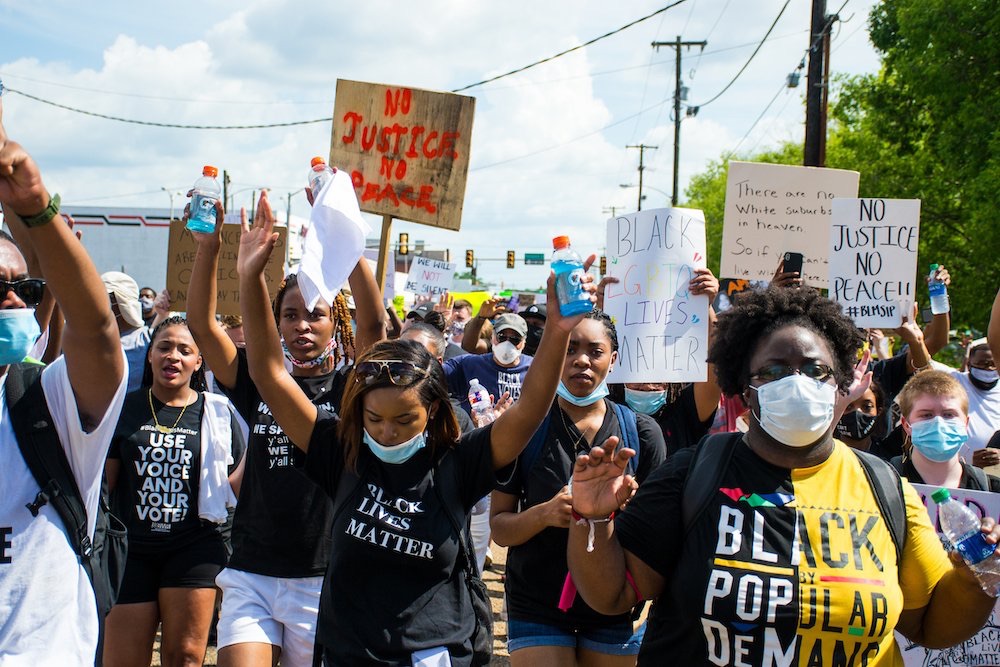
Last year, Lumumba issued an executive order banning officer chokeholds, restrictions against firing at moving vehicles and other policing reforms, but critics say it is not enough.
Jarvis Dortch, the executive director of the ACLU of Mississippi and a former Mississippi House representative, said in a statement on behalf of his organization today that they are “relieved that Derek Chauvin was found guilty of the murder of George Floyd.”
“We are relieved that George Floyd’s family will receive justice. But true justice is more than one verdict. Holding police accountable for abuse of power, disparate treatment and excessive force against Black communities cannot be rare,” Dortch said. “George Floyd was one of more than 5,000 people killed by police since 2015. We must root out racism that is sewn into the fabric of our system of law enforcement.
“We must prohibit police mistreatment of Black communities, which leads to people being both underserved and overpoliced. We must honor the life of George Floyd and the numerous other Black victims of police violence by creating a more just system.”
After today’s verdict, the Mississippi Center for Justice, a nonprofit legal group, said in a statement today that “Chauvin’s accountability is a welcome outlier.”
“Hopefully, this verdict is a signal that the cultural tide in America is shifting towards justice. Until then, MCJ will fight until African American lives are no longer devalued, oppressed, or erased by systemic racism,” the organization said.
‘Replace This Evil With Good’
Leaders at Mississippi’s public universities also offered their thoughts on today’s verdict.
“The death of George Floyd served as a new inflection point in our nation’s pursuit of justice and equal treatment under the law,” University of Mississippi Chancellor Glenn Boyce said in a statement. “We must recognize and acknowledge how deeply the events of the past year unleashed powerful emotions among countless friends, colleagues, neighbors, our community, and the entire nation. Our hope is that today’s outcome of the trial in Minneapolis offers an important step toward healing and progress.”
UM continues to deal with its own racist legacy as evidenced by this publication’s revelations about pressures that some wealthy donors, while expressing explicitly racist views, have put on officials in recent years to keep the school’s Confederate legacy intact. Amid anti-racism protests last year, the university relocated a Confederate monument from its central location on campus to the university’s Confederate cemetery.
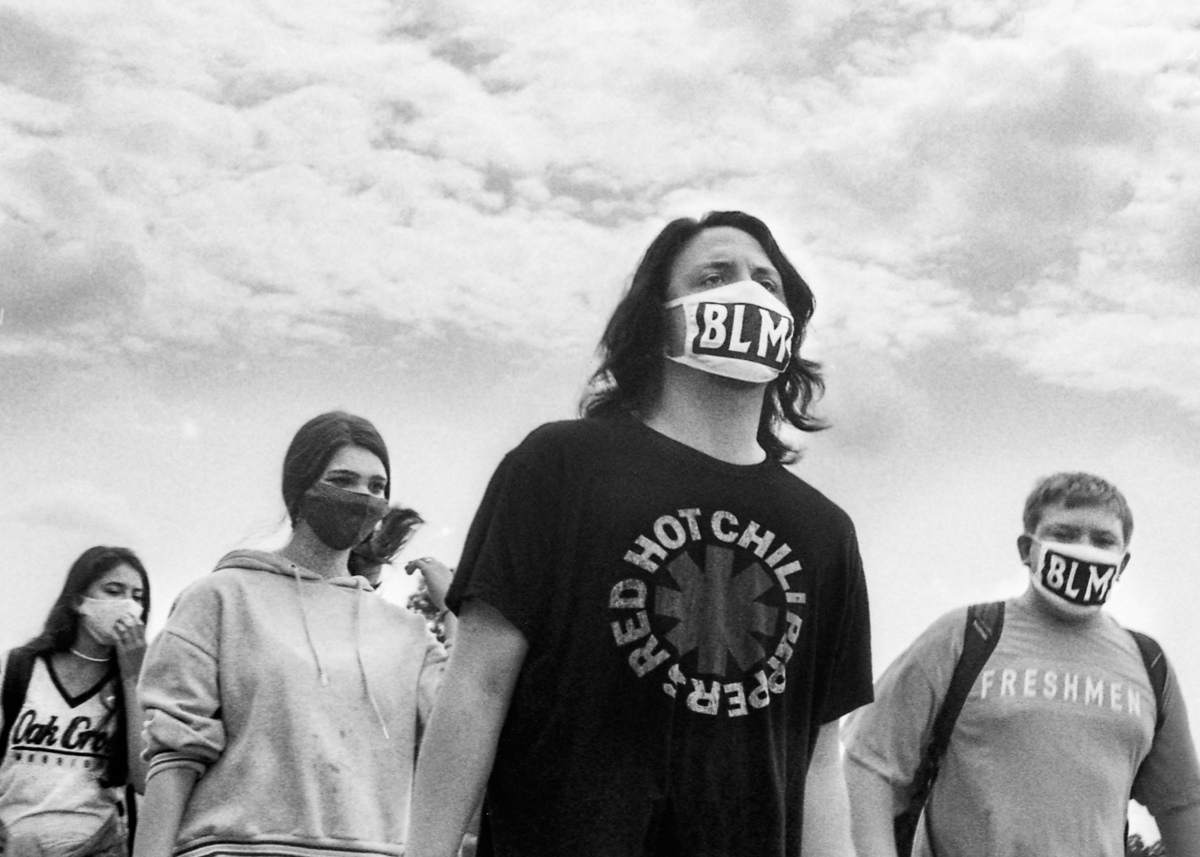
At Mississippi State University, which still honors its white supremacist founder, Stephen D. Lee, President Mark E. Keenum also weighed in on today’s verdict.
“In the wake of the verdict, I hope all in our university family will reflect on this in a thoughtful and peaceful manner,” he said. “This is a time for the MSU family to unite and come together and share empathy and comfort as we move forward.”
Keenum called “diversity” one of the Starkville campus’ strengths.
“Police have a fundamental duty to protect and safeguard the rights of all citizens. As I said a year ago, racism is evil. It is a sin. We must replace this evil with good,” he said. “Our task, I believe, is to ensure to the best of our abilities that we have far more good than evil in the hopes that good will drown out evil.”
The George Floyd Justice In Policing Act
“Today, we feel a sigh of relief. Still, it cannot take away the pain,” Vice President Kamala Harris said in remarks at the White House this evening. “A measure of justice isn’t the same as equal justice. This verdict brings us a step closer. And, the fact is, we still have work to do.
“We still must reform the system. Last summer, together with Senator Cory Booker and Representative Karen Bass, I introduced the George Floyd Justice in Policing Act. This bill would hold law enforcement accountable and help build trust between law enforcement and our communities. This bill is part of George Floyd’s legacy.”
For the second time since June 2020, the U.S. House passed the George Floyd Justice in Policing Act last month by a vote of 220-212, with all except two Democrats voting for it and all except one Republican voting against it. Mississippi’s sole Black or Democratic House member, Rep. Bennie Thompson, voted for the bill; all three Mississippi Republicans voted against it, including Reps. Steven Palazzo, Michael Guest and Trent Kelly.
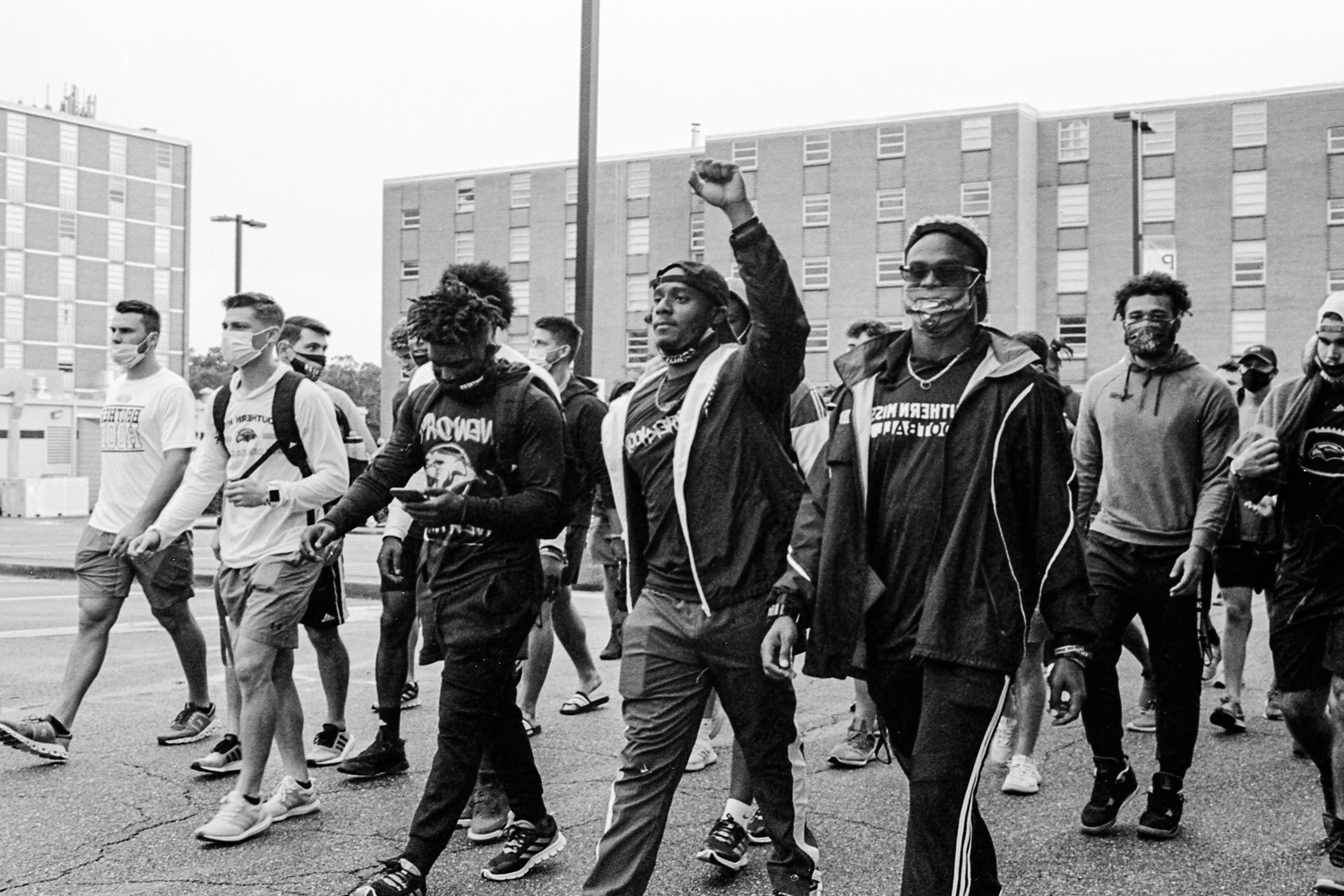
When the U.S. House passed the bill last year, it died in the U.S. Senate under then-Republican Senate Majority Leader Mitch McConnell. Though Democrats now control the U.S. Senate, the bill will likely need the support of all 50 Democrats and at least 10 Republicans to avoid a filibuster and pass.
The legislation includes dozens of reforms that backers say would help reduce instances of police brutality and make it easier to punish officers who engage in it. It would ban law enforcement from using chokeholds or issuing no-knock warrants and would require that use of force be evaluated based on whether it was “necessary,” not whether it was “reasonable.”
The act would also lower the federal legal threshold for prosecuting police misconduct by adopting a “recklessness” standard instead of the current “willfulness” standard. also eliminate qualified immunity for law enforcement, which often makes it difficult for families or victims of police brutality to sue in civil court.
“The President and I will continue to urge the Senate to pass this legislation—not as a panacea for every problem, but as a start. This work is long overdue,” Harris said this evening. “America has a long history of systemic racism. Black Americans—and Black men, in particular—have been treated, throughout the course of our history, as less than human.”
‘We Must Not Turn Away. We Cannot Turn Away.’
After Harris spoke this evening, President Biden said that today’s verdict was “much too rare,” attributing it to “a unique and extraordinary convergence of factors,” including “a crowd that was traumatized” and “a brave young woman with a smartphone.”
“It was a murder in the full light of day, and it ripped the blinders off for the whole world to see the systemic racism the Vice President just referred to—the systemic racism that is a stain our nation’s soul; the knee on the neck of justice for Black Americans; the profound fear and trauma, the pain, the exhaustion that Black and brown Americans experience every single day,” Biden said.
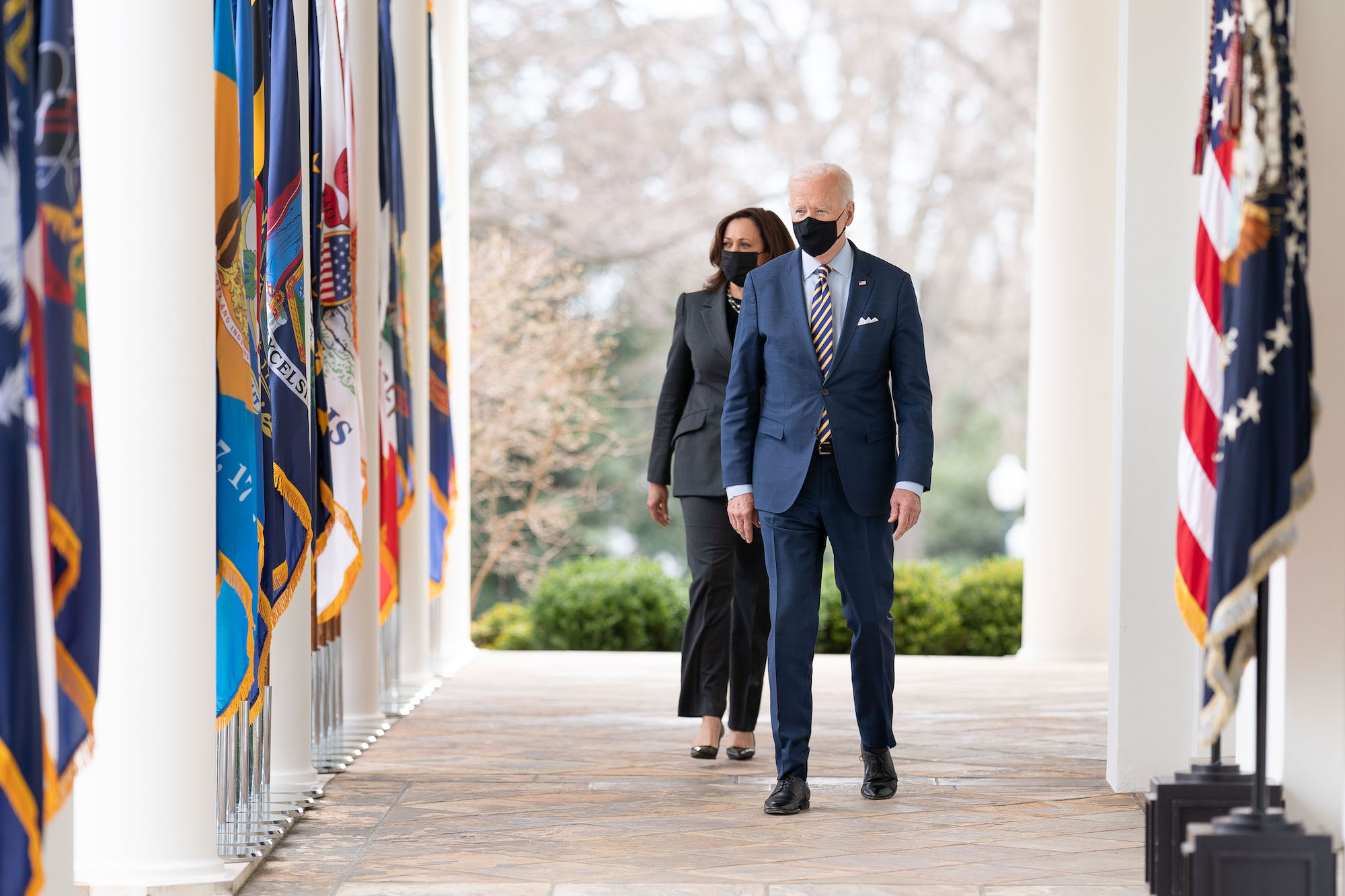
He urged Congress to pass the George Floyd Justice in Policing Act.
“George Floyd was murdered almost a year ago. There’s meaningful police reform legislation in his name. You just heard the Vice President speak of it. She helped write it. Legislation to tackle systemic misconduct in police departments, to restore trust between law enforcement and the people that are entrusted to serve and protect. But it shouldn’t take a whole year to get this done,” he said.
“In my conversations with the Floyd family—and I spoke with them again today—I assured them that we’re going to continue to fight for the passage of the George Floyd Justice in Policing Act so we can—I can sign it into law as quickly as possible. And there’s more to do.”
Biden said he also spoke today with Floyd’s seven-year-old daughter, Gianna Floyd.
“When I met her last year—I’ve said this before—at George’s funeral, I told her how brave I thought she was. And I, sort of, knelt down to hold her hand. I said, “Daddy’s looking down on you. He’s so proud.” She said to me then—I’ll never forget it—‘Daddy changed the world.’ Well, I told her this afternoon, ‘Daddy did change the world.’
“Let that be his legacy: a legacy of peace, not violence—of justice.”
During his remarks, the president repeated George Floyd’s last words: “I can’t breathe.”
“We cannot let them die with him. We have to keep hearing them. We must not turn away. We cannot turn away.”


